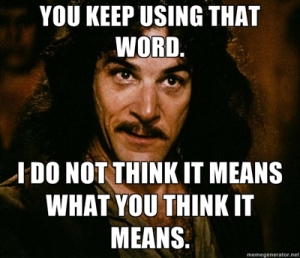English sentences sometimes require a combination of a helping verb with a main verb. A helping verb, also known as an auxiliary verb, helps out the main verb, giving more detail in how time is portrayed. Helping verbs always appear before the main verb in a sentence.
According to The Brief English Handbook, English has 23 helping verbs; 9 work only as helping verbs, and the remainder are forms of do, have, and be.
- do, does, did
- have, has, had,
- be, is, was, were, are, am, been, being
In many cases, a verb will not be complete without a helping verb.
- The doctor will arrive soon.
- The contract was submitted late.
- Steve has been studying all night.
In the examples above, the sentences required a helping verb to complete the verb. Without the helping verb, they would not make sense.
Modals
Modals are a type of helping verb that express probability, necessity, or ability. Below is a list of modal verbs:
- Can, could, may, might, will, would, must, shall, should, ought to
- He does not know the answer.
- I should bring a dessert.
- Dave could come early if needed.
In the examples below, have, has, and had are used with past participles (driven, contributed, slept are all past tense) to form the perfect tense:
- I have driven all night to get here.
Vicky has contributed more than anyone.
Kate had slept later than usual.
In the following examples, is, was, were, are, and am are used with present participles to form the progressive tense:
- John was working on the furnace.
Jason is swimming in the lake.
The students are studying for the finals.
Passive Voice
The passive voice is created by combining a helping verb, is, was, were, are, am, with a past participle. This means that the recipient of the verb or action becomes the subject of a sentence. This is not grammatically incorrect, but a stylistic choice, though your instructor may ask that you avoid passive construction when you can.
- The boy was thrown from the horse.
The trees were scorched by the wildfires.
The kids were bitten by the puppies.
*******************************************************************************
Verb combinations are often confusing for English language learners. English also has irregular verbs that complicate our understanding, but with practice, you will begin to master verb constructions. Visit the links below for more information and exercises.
- A number of recent crashes ____ (raise) questions about the risks of letting new pilots fly at night.
A. had raised B. have raised - The board ____ (state) that approximately eighty people die each year in crashes involving privately flown planes.
A. has stated B. had stated - Some experts ____ (argue) that the number of these types of crashes have decreased over the last twenty years.
A. have argued B. had argued
[Examples 1-3 from Bedford St. Martin’s Exercise Central.]
http://www.englishlanguageguide.com/languagetools/englishverbs.asp
https://owl.english.purdue.edu/owl/resource/601/01/
http://www.englishgrammar.org/verb-conjugation-exercise/











